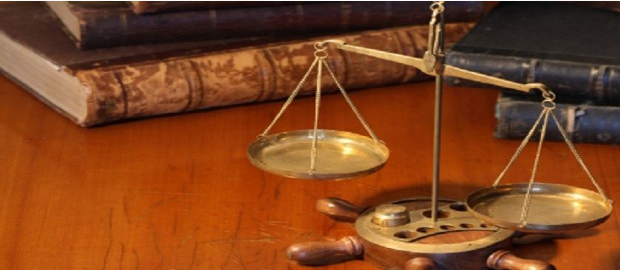Blog Layout
Estate Planning – What Should A Will Avoid Including?
April 17, 2021
Estate Planning – What Should A Will Avoid Including?

A last will and testament is a valuable document when correctly planned. It can alleviate many disagreements about money and property and help ensure that private wealth is divided as desired. Attorneys in College Station TX recommend that anyone without a will should execute one while there is plenty of time with the help of a good estate lawyer. It sounds easy to list valuables and designate who should receive them, yet the process is not that simple with a number of exclusions to handle and other rules about property distribution to consider.
Common Mistakes and Assumptions To Avoid
When a last will and testament is not properly written, the entire document may be null and void or cause situations where the court must divide the property. Knowing what can – and cannot – be included in a will to make the entire document legal should be followed as it is written to prevent such problems from happening.
- Funeral Instructions – Surprisingly, many people put funeral instructions in a will without realizing that such information is usually read after the burial which leaves no way for any special instructions to be known when they would be needed. Any directives should be documented in something like a living will.
- Pets – Estates left to pets often create legal problems, as pets cannot own property. Better options are to leave the pet in the care of a trusted person or facility and provide property or money for such care. In some states, a trust can be created with a pet as the beneficiary.
- Care of A Special Needs Person – This information should be included in a trust with the person as the beneficiary. A Special Needs Trust specifically entails the documentation of the type of care that person requires and other arrangements that should be made as well.
- Gift Conditions – Property gifted with certain conditions such as 'at 21st Birthday' or 'graduating from college' is acceptable. Beyond these kinds of conditions, it is almost impossible to enforce conditions or ensure gifts are given once any parameters have been met.
- Avoiding Taxes or Probate – Wills do not avoid taxation and are subject to probate before property is released. If reducing taxation and avoiding probate is a goal, trusts are a better option and should be discussed with experienced estate attorneys in College Station Texas.
Property That Cannot Be Included in a Will
Certain property is subject to specific dispersal rules, even if it is written into a will to be handled a different way. For many of these situations, trusts will usually provide a better option.
- Beneficiary Already Named – This includes but is not limited to stocks, bonds, life insurance, and retirement proceeds, Payable-on-Death accounts and living trusts should not be included in a will. Trust proceeds disburse before wills and beneficiaries can be changed beforehand.
- Jointly Owned Tenancy Property – Any tenancy property that is co-owned is immediately granted to the surviving tenant, regardless of what a will may indicate. Situations such as this should be handled ahead of time to ensure that property is distributed as desired.
Certain things should not be included in a will to ensure proper dispersal of property. Seek the help of attorneys in College Station to explain the differences between wills and trusts and more importantly, advise on the best way to see that money and property is disbursed as desired and certain estate handling problems avoided.
Call Hoelscher, Lipsey, Elmore and Poole – Estate Attorneys in College Station!
Let experienced College Station attorneys
handle your will – call (979) 314-0065
today!
Share
Tweet
Share
Mail
April 17, 2021
In the realm of real estate transactions, there is nothing more confusing to most people than two commonly used terms: title and deed. Toss in the use of title insurance as part of a property sale transaction and the picture only becomes less clear about the difference between title and deed. Real estate lawyers in Bryan TX advise that there are different types of deeds, each one serving a different purpose in determining the legal ownership of property; however, there is only one property title that shows legal ownership.

April 17, 2021
Buying a house is part of the American dream, an achievement that people work toward for years. After finding the right property, the buying process can sometimes turn that dream into a nightmare when there are conflicts between seller and buyer. To appease both sides and allow the sale of a home to be finalized, real estate attorneys in Bryan Texas are an essential part of the procedure. Enlisting the services of an experienced lawyer can make the difference between buyers actually realizing the dream of owning a home – or having to pass it by and continue the search.

April 17, 2021
It is commonly understood what the purpose of a Last Will and Testament does, especially if there are assets to leave to family or friends. A living trust can be equally valuable, although it often takes the help of law firms in Bryan Texas to grasp the purpose of such a document. Both have similar functions but each is used somewhat differently. When planning an estate, it is important to learn the difference between these two documents to see how a living trust can offer current protection, while a will protects beneficiaries later on.

April 17, 2021
There are nearly 63 million Americans receiving disability payments because of being legally disabled and unable to work. Social Security disability is one of the benefits available to most U.S. citizens; however, the process involved to obtain this benefit can be difficult. Due to a number of fraudulent or unqualified claims, the process of applying for Social Security benefits for the disabled can be lengthy and confusing. This complexity is why many applicants seek the help of lawyers in Bryan Texas who are experienced with the process and can help clients receive a favorable outcome.

April 17, 2021
When someone sustains an injury that might have been caused by the actions of another person, lawsuits may become involved if settlement cannot otherwise be reached. Law firms in Bryan TX see many personal injury cases every year as these are some of the most common types of lawsuits currently being filed. Handling such a case involves more than just filing a complaint and convincing a judge and/or jury to award the injured party due compensation. Personal injury cases can be lengthy, complex, and exhausting to all parties involved, which makes it important to understand the process and what it means to anyone considering filing this type of complaint.

April 17, 2021
Owning rental properties will be profitable when being leased by tenants; empty units will not make any money. The local rental market is booming for many reasons, including the always-present student tenants. Yet some properties remain harder to fill, perhaps creating certain leasing situations that should be avoided. As part of the leasing process, attorneys in Bryan Texas alert owners that interviewing prospective tenants must be done within compliance of the Fair Housing Act to avoid any accusations of discrimination. Read the information presented below about applicable equal housing regulations and fair housing laws to avoid any problems.

April 17, 2021
Despite a depressed housing market over the past few years, interest in buying second homes and investment properties has held its own. Real estate lawyers in Bryan Texas advise that while it is definitely a buyer’s market even with investment homes, it is important to know that the market continues to move. When is the right time to invest? Following are some suggestions for prospective buyers of vacation or investment homes to consider to help make such a decision.

April 17, 2021
Today’s weak economy has created difficult financial conditions for many individuals over the past few years. Jobs are being lost along with healthcare benefits which is putting even home living arrangements at risk. As bills stack up and the choice becomes keeping food on the table or paying bills, it is easy to understand how individuals and families can get into financial straits. For many people, bankruptcy seems as if it is a viable option when things get that bad; however, lawyers in Bryan Texas caution that it is important to understand how the process works and determine if it is the best option before filing for bankruptcy.

April 17, 2021
Civil law is a branch of the United States legal system by which non-criminal wrongdoings are judged. Lawyers in Bryan Texas who handle civil trial settings consider an action to be non-criminal if it is based on violations or offenses committed because of some problem in the interpretation of verbal disputes, contract disagreements, property ownership or damages, most family law, etc.
Contact Us Today!
If you’re interested in our services, please call or fill out the contact form.
Thank you for contacting us.
We will get back to you as soon as possible
We will get back to you as soon as possible
Oops, there was an error sending your message.
Please try again later
Please try again later
Find Us
1021 University Drive East
Post Office Drawer DT
College Station, Texas 77840

